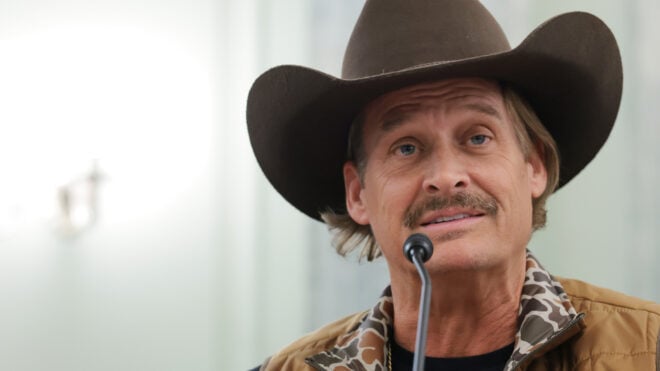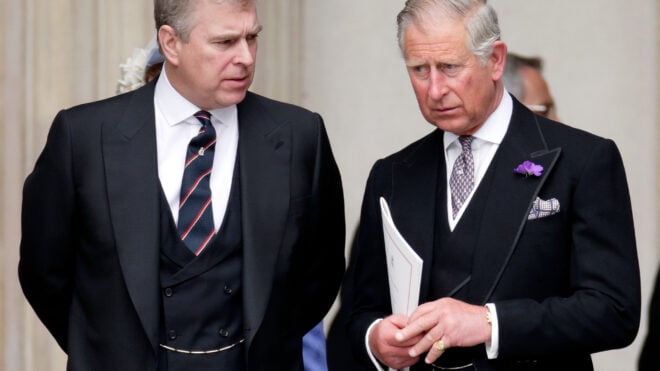
Education concerning American history is a tricky business. Our goal is to give the kids all the knowledge they need in order to figure out this country's history. We want kids ready to decide what they want to do with their lives and succeed within society.
That doesn't look the same for every child, however. Many parents find that they have to supplement a child's education based on the specific needs of their child.
It's hard to figure out how much to tell your child when it comes to history. The history of the United States is complicated and nuanced. That said, we're doing kids a disservice if we act like this country and its historical figures have always done the right thing.
That's not to say that we should cancel historical figures altogether. Rather, kids need to get a more thorough education on how their decisions looked in historical context and how that view may have changed over time. Here are some figures who could use that treatment.
Christopher Columbus
Christopher Columbus has been a hot topic recently, with many calling for his statues to be removed. With that in mind, let's relook at what you know about Columbus.
For one, he did not discover the Americas. Indigenous people did. Columbus discovered an easier route for reaching the Americas, which made it more accessible to other areas of the world. Additionally, the trip wasn't the rough, long journey it was made out to be. It took a month in calm waters.
Columbus was also very cruel to the Indigenous peoples he met in the New World. He brutalized, raped, and enslaved many of the people from that community and, based on his journal entries, felt zero remorse for doing so.
The Pilgrims
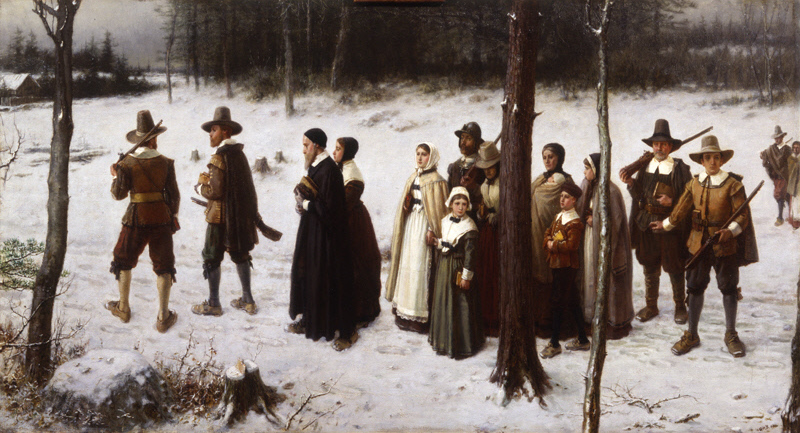
The Pilgrims were in search of religious freedom, but their beliefs were a bit extreme. Like Columbus, they didn't have an amicable relationship with Indigenous peoples. The Pilgrims looked down at them and believed they were "savages."
The Pilgrims and the Native Americans weren't looking past their differences and showing thanks for what they had, as the traditional tale suggests. The truth is that the Pilgrims were celebrating their conquest of the Natives.
"One indication of moral progress in the United States would be the replacement of Thanksgiving Day and its self-indulgent family feasting with a National Day of Atonement accompanied by a self-reflective collective fasting," Professor Robert Jensen of the University of Texas at Austin told The Independent.
George Washington
George Washington was one of our founding fathers. He was also, by current standards, a prolific racist and sexist. He started owning enslaved people at just 11 years old. By the time he died, he owned over 300 enslaved people, which he arranged to be freed, according to George Washington's Mount Vernon.
While he did become uneasy with the institution toward the end of his life, his complicated relationship with race and sex shouldn't be glossed over.
Thomas Jefferson
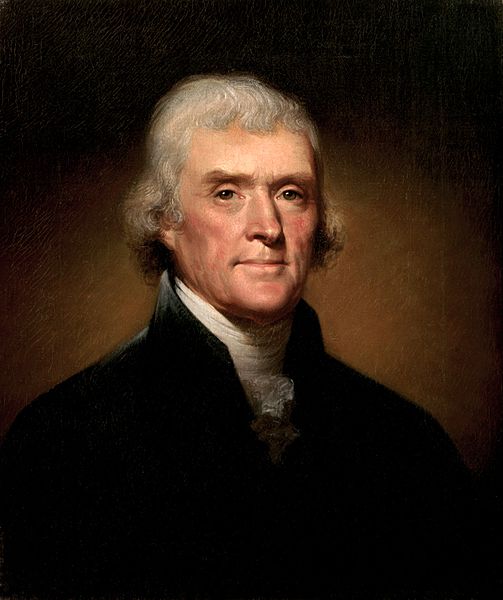
Thomas Jefferson was an important character in the early days of our nation, but he was deeply flawed. His plantation estate at Monticello had countless enslaved individuals. He raped one of those enslaved people, Sally Hemings, when she was 14 and he was 44. Monticello takes a deep dive into the complex situation and how it was historically proven.
Sally wasn't just any slave. She was also technically the half-sister of his deceased wife, Martha, and bore a strong resemblance to her. Sally was the product of a relationship between her mother, a slave, and Martha's father.
Benjamin Franklin
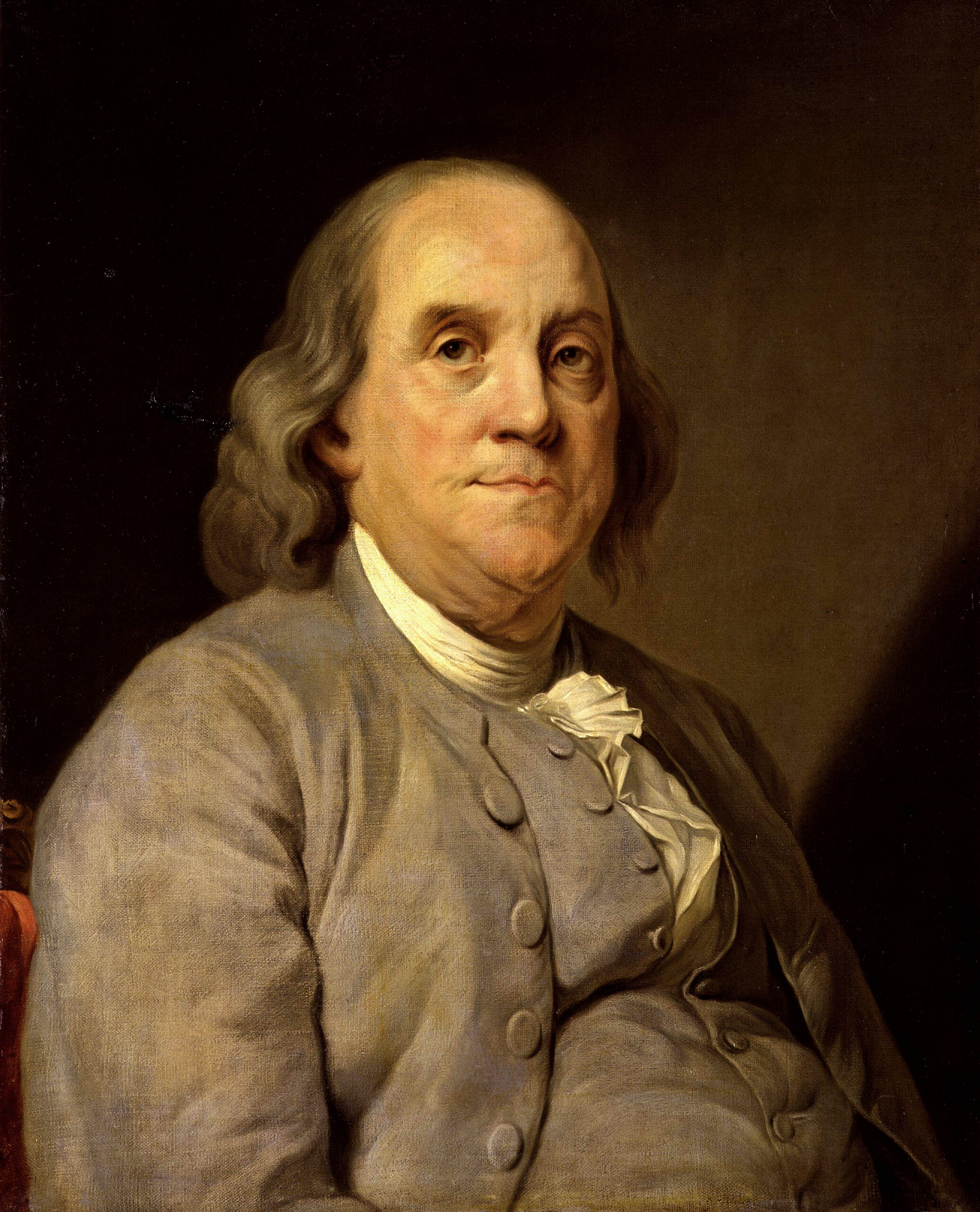
Benjamin Franklin was a brilliant inventor, but he did have some problematic opinions. He believed in slavery earlier on his life but grew to understand the problems with the practice.
He did continue to believe in white superiority and voiced some strong anti-immigration opinions throughout his life. In a letter to Peter Collinson, he wrote, "Those who come hither are generally of the most ignorant Stupid Sort of their own Nation."
Later, he worried they were threatening the whiteness of New England. "Why should Pennsylvania, founded by the English, become a Colony of Aliens, who will shortly be so numerous as to Germanize us instead of our Anglifying them, and will never adopt our Language or Customs, any more than they can acquire our Complexion," he wrote in a short essay called, "Observations Concerning the Increase of Mankind, Peopling of Countries, etc."
"Which leads me to add one Remark: That the Number of purely white People in the World is proportionably very small. All Africa is black or tawny. Asia chiefly tawny. America (exclusive of the new Comers) wholly so. And in Europe, the Spaniards, Italians, French, Russians and Swedes, are generally of what we call a swarthy Complexion; as are the Germans also, the Saxons only excepted, who with the English, make the principal Body of White People on the Face of the Earth.
"I could wish their Numbers were increased. And while we are, as I may call it, Scouring our Planet, by clearing America of Woods, and so making this Side of our Globe reflect a brighter Light to the Eyes of Inhabitants in Mars or Venus, why should we in the Sight of Superior Beings, darken its People? why increase the Sons of Africa, by Planting them in America, where we have so fair an Opportunity, by excluding all Blacks and Tawneys, of increasing the lovely White and Red? But perhaps I am partial to the Complexion of my Country, for such Kind of Partiality is natural to Mankind."
Abraham Lincoln
Abraham Lincoln is credited with the emancipation of enslaved people, but he came to abolition later in life. In fact, he was publicly willing to allow slavery to continue in states where it still existed if it meant the preservation of the union.
"What then? Free them all, and keep them among us as underlings? Is it quite certain that this betters their condition? I think I would not hold one in slavery, at any rate; yet the point is not clear enough for me to denounce people upon," he said in an October 1854 speech in Illinois.
"What next? Free them, and make them politically and socially, our equals? My own feelings will not admit of this; and if mine would, we well know that those of the great mass of white people will not."
In a letter in 1851, he expresses a different opinion. "I say now, however, as I have all the while said, that on the territorial question — that is, the question of extending slavery under the national auspices, — I am inflexible. I am for no compromise which assists or permits the extension of the institution on soil owned by the nation. And any trick by which the nation is to acquire territory, and then allow some local authority to spread slavery over it, is as obnoxious as any other."
Thomas Edison
Thomas Edison was a genius inventor, but one of his less-talked-about projects leaves a lot to be desired.
Thomas publicly denounced death by electrocution in a move against his rival, George Westinghouse, who was producing a chair. To prove that he was also against the death penalty, George decided not to sell the generators to public officials. When Harold Brown was tapped for the project, Thomas quietly funded Harold's work, Smithsonian Magazine reports.
Andrew Carnegie
Andrew Carnegie amassed immense wealth as a businessman and was known to give back. How he amassed that fortune is what's often criticized. Like many businessmen of his time, he was a fan of cheap labor and employed plenty of it in steel mills. Seeking better conditions, his employees tried to organize.
During a strike at the Homestead steel plant in Pennsylvania, he had his manager fire all the workers and brought in armed guards. The ensuing situation led to the deaths of 20 workers and four police officers, according to PBS.
Henry Ford
Henry Ford may have created the Model T, but he didn't invent the first car. Karl Benz, a German engineer, developed a working car by 1885.
Henry also openly voiced anti-Semitic views, blaming Jews for things like strikes, economic discord, and agricultural failures. A friend who went on a trip with Henry wrote a diary entry about how he lectured a group around the campfire about them.
"[He] attributes all evil to Jews or to the Jewish capitalists," the friend wrote in his diary. "The Jews caused the war, the Jews caused the outbreak of thieving and robbery all over the country, the Jews caused the inefficiency of the navy…"
He published his stances in writing and would regularly have them distributed at early dealerships. "Ford bound the articles into four volumes titled The International Jew and distributed half a million copies to his vast network of dealerships and subscribers. The rhetoric was not unusual for its content, as much as its scope," PBS notes.
"As one of the most famous men in America, Henry Ford legitimized ideas that otherwise may have been given little authority."
Theodore Roosevelt
Teddy Roosevelt was a passionate environmentalist who was progressive by many standards of his day.
He also held some deeply problematic views. Teddy respected Native Americans as warriors but ultimately viewed them as "savages."
"He respected them because they were ardent warriors. But he expected that they would be eliminated, exterminated from America in contest with the white men who were settling the continent, to the people who he hailed as backwoodsmen. And he required the Indians to be there to be the strenuous opponent through which Americans could prove their valor. But he was very clear that in a modern America that he was building, he expected they would be exterminated either through battle or through simply the inability to adjust to modern life," explained Gary Gerstle, a professor of American history at the University of Cambridge.
He vehemently denounced slavery but believed in white supremacy. "He was a white supremacist, but he was a fierce opponent of slavery. He regarded slavery as a sin visited upon America by aristocratic Englishmen who came close to ruining the experiment of America by placing people of African descent on his glorious continent," Gary noted.
Fiorello La Guardia
Fiorello La Guardia was one of the most popular mayors of New York City ever. His legacy can be seen in numerous public institutions bearing his name.
Japanese residents living in New York City after the bombing of Pearl Harbor felt differently. He ordered Japanese residents to stay home, had the New York Police Department shut down every Japanese restaurant in the five boroughs, and then rounded up hundreds of Japanese men and women to be sent to Ellis Island for detention, according to the La Guardia and Wagner Archives.
From there, Japanese immigrants, along with German and Italian immigrants, were sent to internment camps. When they were eventually released, he opposed the immigrants relocating to New York City.
John Wayne
John Wayne's history of racism and homophobia recently resurfaced in the form of an early 1970s Playboy interview. John proudly explained his belief in white supremacy.
"I believe in white supremacy until the Blacks are educated to a point of responsibility," he said. "I don't believe in giving authority and positions of leadership to irresponsible people."
Martin Luther King Jr.
Martin Luther King Jr. was the kind of historical figure whom enough can't be said about. While he did immense work in the area of racial justice, he didn't always practice what he preached as a pastor.
Martin was allegedly a notorious womanizer. Recent reports indicate he may have witnessed a rape and encouraged it to continue. The tapes were obtained as part of an FBI surveillance project that aimed to discredit his work in civil rights. A memo found with the tapes quotes Martin as telling women who were unwilling to perform certain acts on other people present that to "perform such an act would 'help your soul.'"

These historical figures are beloved by different people for different reasons. All of them offer an important opportunity for us to talk to our kids about complicated people and times in history.
In this, they'll learn that there is no such thing as a perfect person. Sometimes, wonderful people do horrifying things because of ignorance, egomania, or other deep-seated issues.
You can be knowledgeable and even appreciative of a person's strengths while being informed of their shortcomings. Only you can decide what makes a historical figure worthy or unworthy of your respect, but no one can do that properly without having all the information presented to them.


